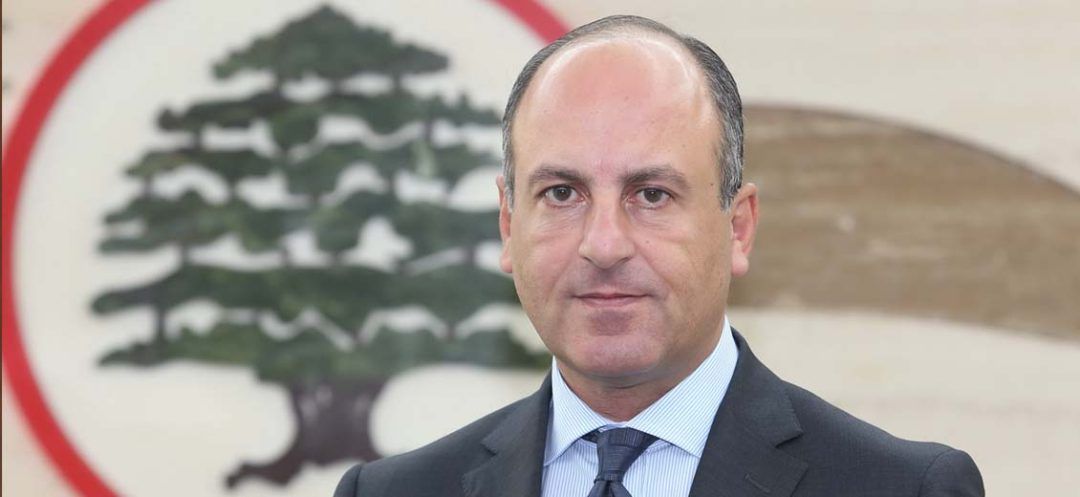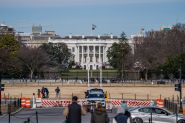
Member of the "Strong Republic" bloc, MP Pierre Bou Assi, shared his insights on Lebanon’s current situation, addressing the nation's challenges.
Bou Assi expressed concern for all Lebanese sects, noting a prevailing sense of existential peril. Many Lebanese feel excluded from a meaningful participation in the nation's affairs, with the erosion of state authority and Iran's increasing influence over strategic decisions.
In an interview on Wednesday on the local TV station Tele Liban, Bou Assi stated that Iran had dragged Lebanon into a confrontation with Israel to secure itself a seat at the negotiating table.
Bou Assi remarked that both Iran and Hezbollah do not seek war; rather, Hezbollah is avoiding actions that would violate engagement rules. He warned that the growing Shiite isolationism is a dangerous trend for Lebanon.
“Hezbollah cannot force other Lebanese parties to die today 'on the road to Jerusalem’, they are partners in this country, not mere add-ons or guests,” Bou Assi said. (Editor's note: 'on the road to Jerusalem' is a term Hezbollah uses when announcing the death of one its combattants).
He added that Israel has significantly infiltrated Hezbollah, making the country vulnerable.
“There may be more than a thousand agents in Lebanon, given that more than 500 targets have been struck,” he added. He highlighted Lebanon's vulnerabilities in security, military, economic, and social sectors, stating that Hezbollah's actions have cost Lebanon significantly, both now and since 2006.
Bou Assi's critique extended to the state’s faltering governance structures, asserting that “Prime Minister Najib Mikati has failed and abdicated his responsibilities.” He urged the caretaker Prime Minister to take a definitive stance, adhere to international legitimacy, and respect Resolution 1701.
Turning his focus to Lebanon's pressing electricity crisis, Bou Assi criticized Gebran Bassil for rebuffing proposals from Qatar and Kuwait aimed at resolving the issue. He accused Bassil of prioritizing personal gain over national interests, calling for a decisive overhaul of the energy sector to combat corruption and inefficiency.
Bou Assi expressed concern for all Lebanese sects, noting a prevailing sense of existential peril. Many Lebanese feel excluded from a meaningful participation in the nation's affairs, with the erosion of state authority and Iran's increasing influence over strategic decisions.
In an interview on Wednesday on the local TV station Tele Liban, Bou Assi stated that Iran had dragged Lebanon into a confrontation with Israel to secure itself a seat at the negotiating table.
Bou Assi remarked that both Iran and Hezbollah do not seek war; rather, Hezbollah is avoiding actions that would violate engagement rules. He warned that the growing Shiite isolationism is a dangerous trend for Lebanon.
“Hezbollah cannot force other Lebanese parties to die today 'on the road to Jerusalem’, they are partners in this country, not mere add-ons or guests,” Bou Assi said. (Editor's note: 'on the road to Jerusalem' is a term Hezbollah uses when announcing the death of one its combattants).
He added that Israel has significantly infiltrated Hezbollah, making the country vulnerable.
“There may be more than a thousand agents in Lebanon, given that more than 500 targets have been struck,” he added. He highlighted Lebanon's vulnerabilities in security, military, economic, and social sectors, stating that Hezbollah's actions have cost Lebanon significantly, both now and since 2006.
Bou Assi's critique extended to the state’s faltering governance structures, asserting that “Prime Minister Najib Mikati has failed and abdicated his responsibilities.” He urged the caretaker Prime Minister to take a definitive stance, adhere to international legitimacy, and respect Resolution 1701.
Turning his focus to Lebanon's pressing electricity crisis, Bou Assi criticized Gebran Bassil for rebuffing proposals from Qatar and Kuwait aimed at resolving the issue. He accused Bassil of prioritizing personal gain over national interests, calling for a decisive overhaul of the energy sector to combat corruption and inefficiency.
Read more



Comments